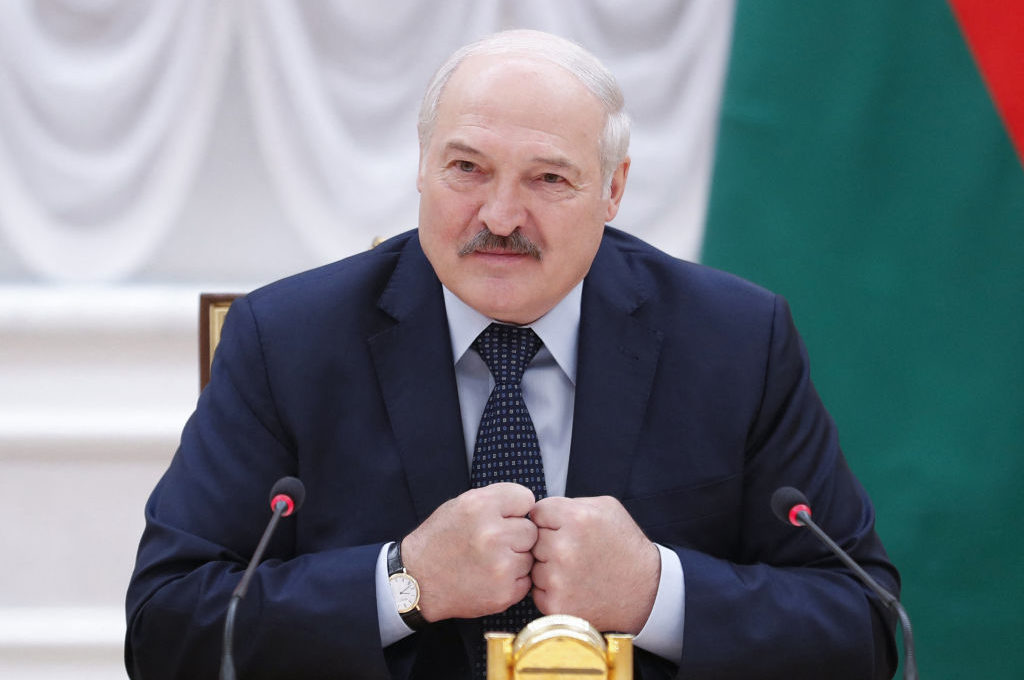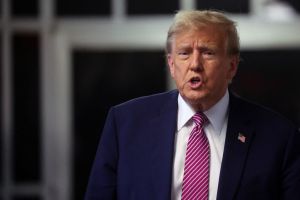Belarus, the former Soviet satellite state, isn’t exactly a global heavyweight. Alexander Lukashenko, the country’s authoritarian president, is an international pariah who is better at concocting conspiracy theories than he is at running a country.
At $60 billion, the Belarusian economy is about the size of Rhode Island’s. Other than petroleum, cheese and dump trucks, Belarus doesn’t offer much in the way of exports. A once promising information technology sector is now gutted, as Lukashenko’s crackdown on dissent forces highly educated talent to flee the country for the Baltics.
Lukashenko, however, is smarter than he looks. Sure, he can be a raving lunatic at times, like when he suggested Covid-19 was merely a psychological disorder that could be willed into existence by a good soak in the sauna. But for a man who doesn’t have much leverage on his own, Lukashenko has managed to create Europe’s biggest migration crisis since 2015, when hundreds of thousands of people were streaming into the European Union in a desperate attempt to escape civil war and persecution.
While the Belarusian authorities will deny their involvement, Lukashenko’s government has transformed Minsk, his country’s capital, into a hub for irregular migration, where thousands of people from the Middle East use Belarusian territory as a giant transit station for their journeys into Europe. The forested border between Belarus and Poland is now a no-man’s land of despair — and it’s all being instigated by the former farm boss with the funny mustache.
If the purpose behind the Belarus-organized migrant push into Poland is to penalize the EU for sanctioning Minsk and hosting Lukashenko’s opponents, it appears to be working. EU officials are watching images of migrants trapped in the forest with increasing alarm (some of those migrants have frozen to death). Outgoing German chancellor Angela Merkel recently phoned Russian president Vladimir Putin in the hope he would restrain the prickly Lukashenko, but Putin brushed off the request.
The EU, an institution that prides itself on its liberal values, is now talking about erecting border barriers at the bloc’s eastern flank to stop the influx into Europe. The situation on the Belarus-Poland border is looking eerily familiar to Europe’s past migration crises, when fully armed border guards stared at exhausted refugees gathering on the other side of the concertina wire.
Even before this latest crisis, the EU had imposed four rounds of sanctions on Belarusian officials and government-linked companies, including restrictions on the import of potash, one of Minsk’s largest exports. The Biden administration has joined the fray as well; this week, the State Department telegraphed that new sanctions were in the works and would be published in coordination with Brussels.
Washington, however, is a tertiary actor in this dispute and likely won’t be able to stop Lukashenko’s inhumane game even if it wanted to. Trade between the US and Belarus this year is in the range of $480 million, so cutting off the entire trade relationship would essentially be a symbolic exercise in displeasure. Severing the diplomatic relationship wouldn’t do much good either, since the US Embassy in Minsk is already short-staffed and Lukashenko doesn’t care what Washington thinks of his behavior anyway.
The US Treasury could theoretically go beyond direct sanctions and bar any foreign entity that does business with the Lukashenko government from accessing the US financial system. But as illustrated in other countries where America invoked this strategy, including Iran, Syria, North Korea and Venezuela, secondary sanctions often don’t succeed at changing a government’s policy. They also take a heavy toll on the very people they’re supposed to help. Governments often find ways of circumventing them — just ask North Korean leader Kim Jong-un, who is a master of using ship-to-ship transfers in the dead of night to export coal and import fuel oil. The poor schlub on the street doesn’t have that luxury.
To date, Lukashenko has managed to stay in power through brute force and a big sugar daddy otherwise known as Russia. If it wasn’t for the Kremlin’s loans, fuel subsidies, preferential market access, and diplomatic support, there is a decent chance Lukashenko would be enjoying the rest of his life in exile right now. Until Putin decides to cut the cord or is convinced there is a better alternative than Lukashenko, the US and Europe will have to find a way to deal with his Machiavellian tendencies.
Some problems are not ready for prime-time solutions — and even the United States, which likes to see itself as the center of the universe, has its limits.


















